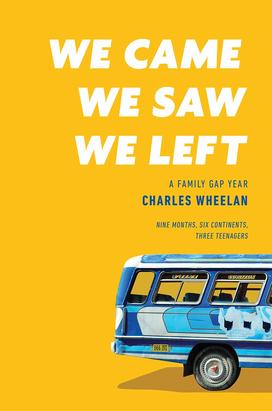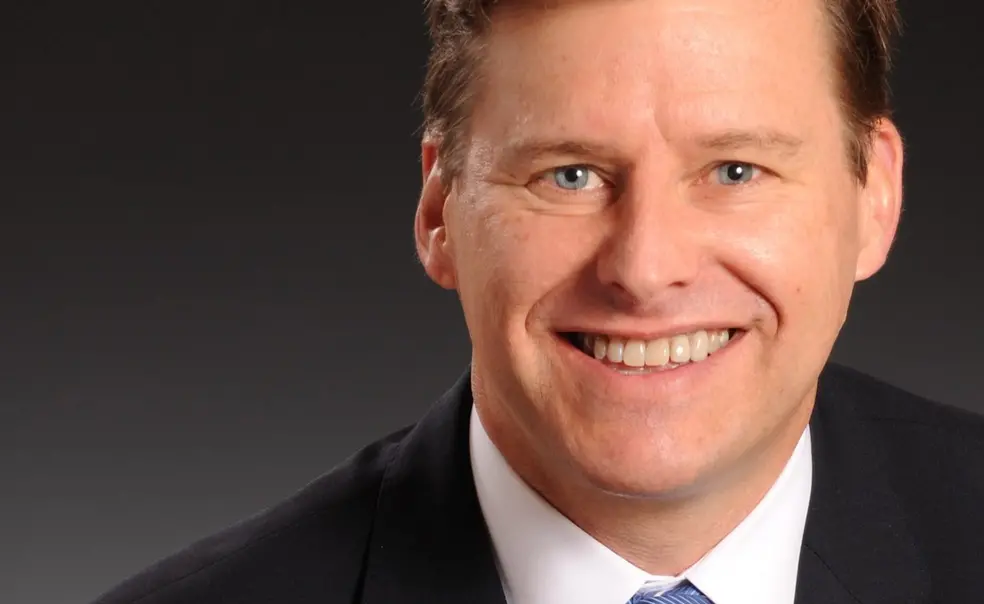Charles Wheelan *93 Narrates His Family’s Gap Year Abroad

With a strong sense of humor and excitement, the stories of global adventures also contain deeper themes of dealing with family and politics while abroad. We Came, We Saw, We Left is an intimate look at the new insights about one’s loved ones, and the world, traveling can offer.
The author: Charles Wheelan is the author of the best-selling Naked Statistics and Naked Economics and is a former correspondent for the Economist. He teaches public policy and economics at Dartmouth College and lives in Hanover, New Hampshire, with his family.
Opening lines: Two of my children were missing. I was standing on a train platform in Medellín, barely ten days into a trip that would, in theory, take our family around the world. It had been over an hour since Katrina, eighteen, and CJ, thirteen, had disappeared into the rush-hour mayhem. Yes, Medellín, Colombia, the former seat of Pablo Escobar’s drug empire, one of the most violent places on the planet in the 1980s and ’90s. During that period, Colombia was a country where drug kingpins bribed compliant police officers and politicians and assassinated those who could not be bought.
It was a country where the narcos corrupted the state from within while guerrilla groups fought to overthrow the government — a simmering civil war that was funded by extortion, drug trafficking, and kidnapping.
Where children from wealthy families were snatched off school buses, taken deep into the jungle, and sometimes held for months until their families could scrape together the huge ransom.
Where so many people were kidnapped during the height of the violence that Colombia’s biggest radio station developed a program explicitly designed for kidnap victims and their families. Beginning at midnight on Saturdays, the show offered Colombians an opportunity to call in and broadcast messages to kidnapped relatives.
Yes, that Medellín.
Of course, by the time I found myself on a train platform in the fall of 2016, Colombia had transformed itself. The government and the left-wing FARC rebels, the biggest guerrilla group, had negotiated a peace deal that would soon be put to a public referendum. Pablo Escobar was dead. Violent crime had plummeted. But still: Where were my children? We had been separated at rush hour when we could not all squeeze on the same train. That was now feeling like a long time ago. Why were Katrina and CJ not texting me? What could go wrong for two American kids wandering lost in Medellín?
The rational part of my brain was saying: Not much. I work with data. I wrote a book on statistics. The real dangers in life for young people, in Medellín or New Hampshire, are motor vehicles and smoking and suicide and sun exposure. Getting kidnapped in Medellín in 2016 was more like a shark attack — a relatively improbable event that captures an undue amount of public attention. But I watch “Shark Week.” I’ve read about people who were struck by lightning twice. Unlikely events are unlikely—but they are also events, which means that they happen. As an hour drifted toward ninety minutes and Katrina and CJ had not turned up or texted, the rational part of my brain was losing out to the more imaginative side. I began thinking of the lottery slogan, “Someone’s gotta win, might as well be you,” only it was being twisted into, “Some people still get kidnapped, maybe it was them?” I was running out of alternative explanations for why two reasonably intelligent teens had not found a place with Wi-Fi from which they could contact my wife Leah or me.
As I waited idly and ineffectually on a train platform, making sure not to lose my own Wi-Fi connection, various scenarios began worming their way into my mind. Could Katrina and CJ have been grabbed off a crowded metro train at rush hour?
If so, how would I explain that to my mother?
Review: "The family’s offbeat experiment in global immersion is a triumph of cultural connection, a celebration of humanity’s similarities and differences, presented with a winning blend of humor and humility. For those suffering from pandemic cabin fever, Wheelan’s exuberant travelogue will provide a welcome vicarious getaway."
- Carol Haggas, Booklist










No responses yet